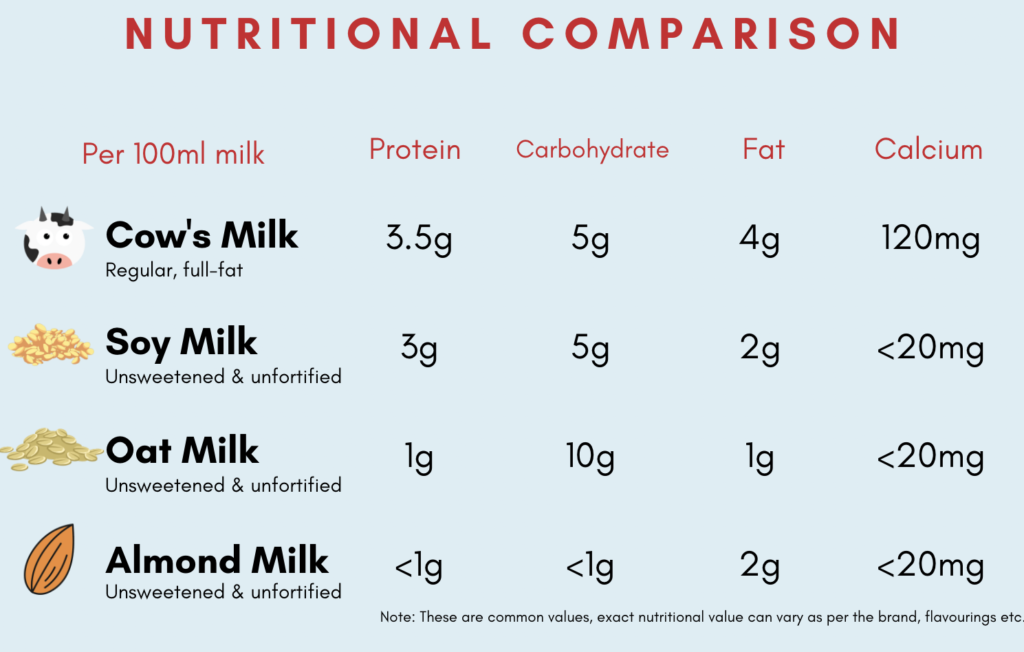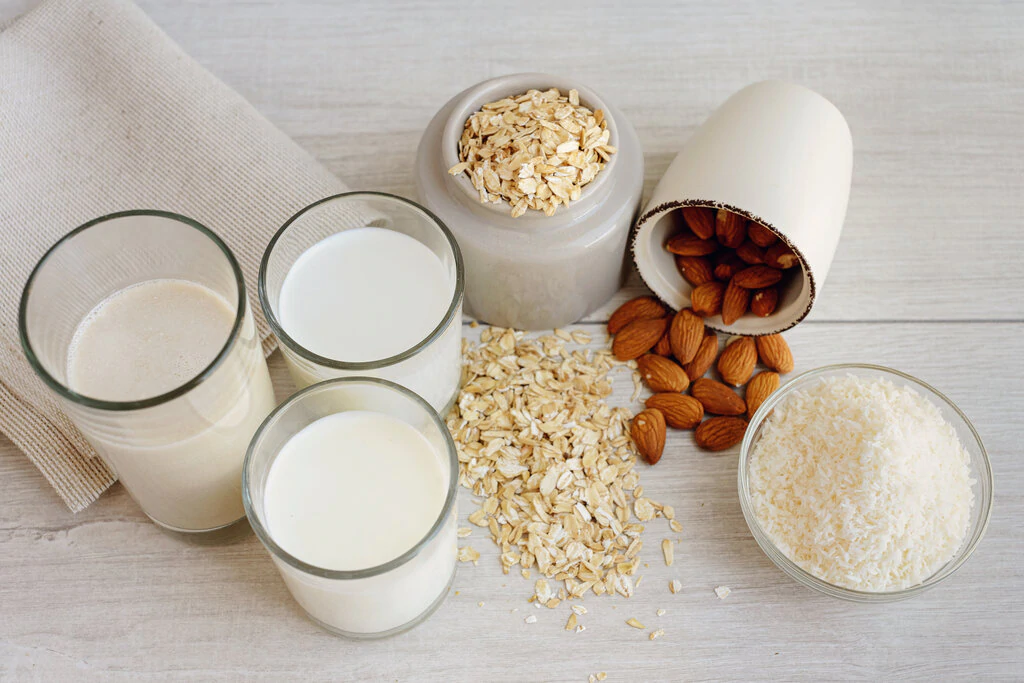There are a variety of milks available today and the choice can get confusing! Let’s break it down and compare cow’s milk with oat, almond and soy milk.
Is cow’s milk healthy?
Cow’s milk products have a unique nutritional profile and are rich in nutrients such as protein, calcium, iodine, B vitamins including B 12, carbohydrates, phosphorous, potassium and more. They provide an overall sound food matrix and contrary to popular belief, full-fat cow’s milk does not increase risk of cardiovascular disease. In fact, even Heart Foundations have updated guidelines to reflect that it is safe to be consume for overall healthy individuals.
Do you need to skip cow’s milk?
Unless one has an allergy/intolerance it is not necessary to eliminate dairy from a nutritional perspective. Of course, taste or personal preferences can also play a role and eventually it becomes important to choose an appropriate alternative to ensure your diet is nutritionally sound.
In general, plant-based alternatives such as soy, almond, oat milk are not nutritionally identical to cow’s milk as can be seen below:

Whilst cow’s milk provides nearly 250mg or ¼ of an adult’s recommended daily intake, almond milk without added calcium provides less than 20mg. Thus, a significant difference comes in when eliminating dairy, that must be planned for in the diet (whether through the milk alternatives or other foods) to meet overall requirements.
There’s more to it
That’s not to take away from other merits of plant-based milks as they can be sources of unsaturated fats, phytosterols which can be beneficial for health – however there are many ways of getting these nutrients such as by consuming nuts, soy, vegetables, fruits and other plant foods.
Key takeaways
Finally milk choice also comes down to personal or ethical beliefs and taste preferences. If you are swapping out cow’s milk for a plant-based milk, do here’s some suggestions:
- Soy milk is most similar to cow’s milk in nutritional profile
- Choose milks fortified with nutrients such as Calcium and Vitamin B12
- Watch out for added sugars and extras, especially in flavoured varieties
For individualised support to ensure you’re getting adequate nutrition, seek advice from a qualified dietitian.
References:
- Aydar, E.F., Tutuncu, S., & Ozcelik, B. (2020). Plant-based milk substitutes: Bioactive compounds, conventional and novel processes, bioavailability studies, and health effects. Journal of Functional Foods, 70, 103975.
- Drouin-Chartier, J. P., Brassard, D., Tessier-Grenier, M., Côté, J. A., Labonté, M. È., Desroches, S., Couture, P., & Lamarche, B. (2016). Systematic Review of the Association between Dairy Product Consumption and Risk of Cardiovascular-Related Clinical Outcomes. Advances in nutrition (Bethesda, Md.), 7(6), 1026–1040. https://doi.org/10.3945/an.115.011403

